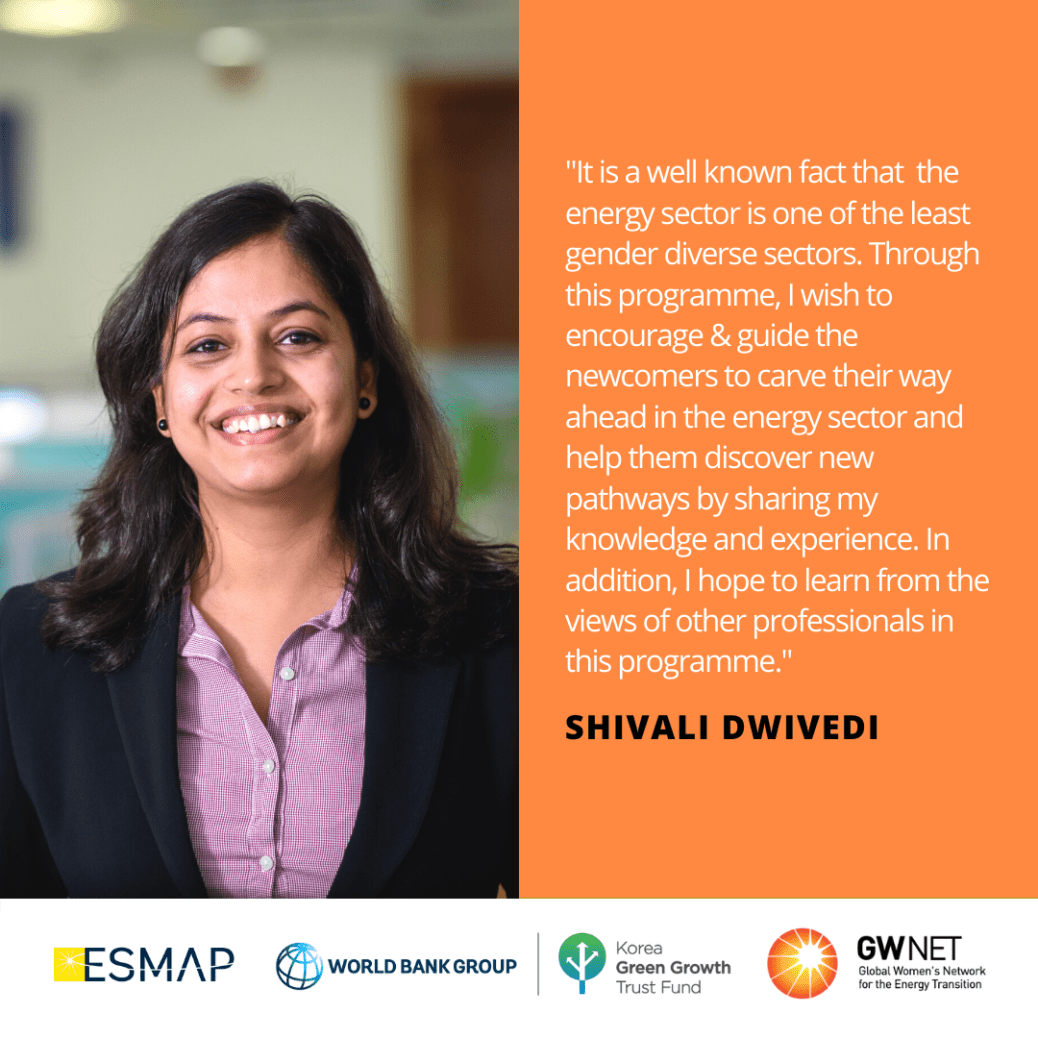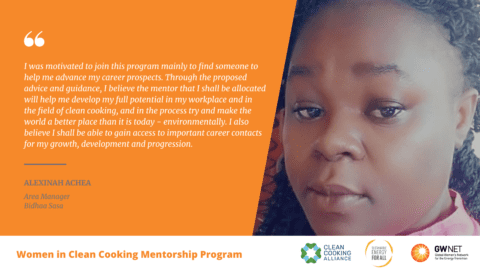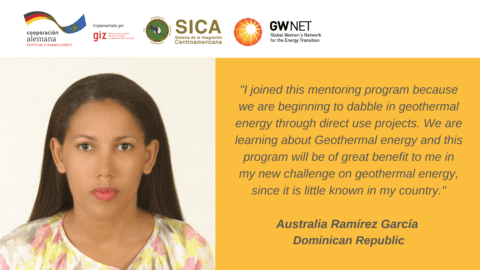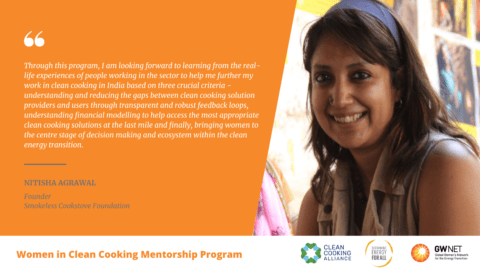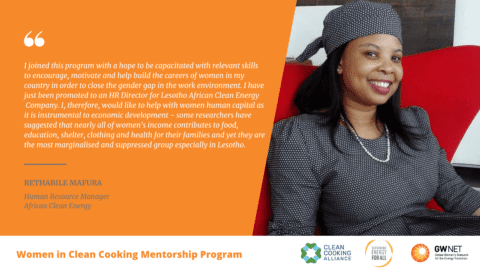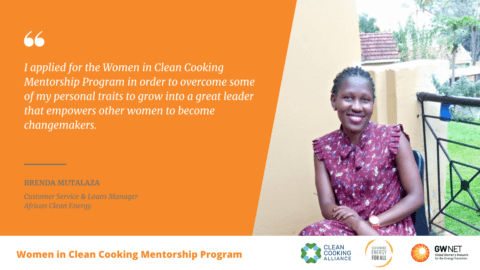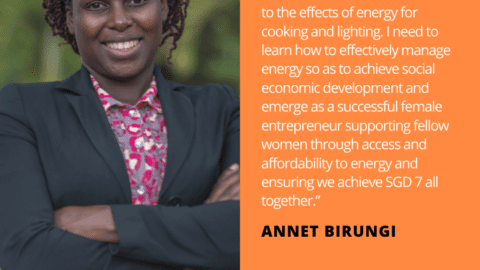The Women in Energy Storage Mentoring Programme sat down with Shivali Dwivedi, one of this year’s mentors, to chat about her journey in renewable energy and the challenges and opportunities in the energy storage sector.
1. Tell us a little about yourself. What do you love most about what you do?
I am a passionate energy-sector professional working in the field of energy consulting for the last 6 years. I have completed my masters in the field of renewable energy. Over the years, I have worked on various projects in the field of Indian power markets, renewable energy, virtual power plants, electric vehicles, energy storage, and smart grids.
The thing that I love the most about my field is getting to learn something new each day! Since the beginning of my career, I have worked in the energy consulting field which has truly offered me the chance to work on widely varying assignments. This has definitely pushed me to explore and appreciate the variety of tasks and the interesting work that is happening not only in India but across the globe. In this field, one gets to interact with experienced clients and knowledgeable counterparts which in itself is a highly enjoyable and learning experience.
2. What were your goals when you started working in energy storage? Have these evolved?
I started working in the area of ‘grid-level energy storage’ during my master’s thesis. Entering into a new domain, the goal was to best utilize my knowledge, improve it with time, and explore the chances it offered – focusing mostly on battery energy storage. As time passed, the battery storage technology and its applications evolved. This was visible in the assignments that I was working on.
In terms of end-application, the projects on which I worked varied from grid-level energy storage for a utility-scale solar-wind hybrid plant, energy storage as a part of virtual power plants, and the mobile energy storage (in electric vehicles (EVs)). Though my basic goal remains the same, the experience suggests that off-grid energy storage applications and storage in EVs (especially, applications like Vehicle-to-grid) should be explored further.

3. How have you adapted to the challenges caused by the COVID-19 pandemic and what advice would you give someone going through similar challenges?
Maintaining a work-life balance has always been a challenge for every working professional – irrespective of gender. With COVID-19 and consecutively, working from home, this challenge has grown as the line between work and life narrowed down.
To maintain this balance, I ensured that I have an appropriate schedule throughout the day. Having a proper timetable and self-discipline helps me manage office work and my personal life efficiently. At the same time, my current employer – ICF, should also be appreciated for ensuring that employees get the flexibility they need in terms of working hours and holidays.
4. What are the opportunities for energy storage growth in your country?
With the advent of EVs, Renewable Energy plants, and distributed energy resources in India, opportunities for growth of energy storage (which here refers to battery storage) in the country are enormous – both at the grid level and behind-the-meter. As per the energy storage roadmap for India, prepared by Indian Smart Grid Forum along with NITI Aayog in 2019, India could have a storage demand of 2416 GWh by 2032 (1002 GWh of stationary storage + 1414 GWh of mobile storage in EVs).
Furthermore, in a recent move, the government of India allowed sales of electric vehicles without batteries. This move is expected to pave way for further growth of the Indian energy storage sector with more battery swapping stations coming up and with increasing penetration of batteries in the Indian market.
5. What challenges have you faced in the sector? Can you tell us how you overcame (or are overcoming) this challenge(s)?
Fortunately, I have never faced any major challenge in this sector. I sometimes feel strange being the only woman in a conference room or in a meeting, but certainly, my male counterparts have always been supportive. In addition, I am fortunate enough to have the flexibility and encouragement to strike a work-life balance, which might not be the case with all women working in the sector.
Lack of female role models is yet another issue in the energy sector, but in the end, you really just need to believe in yourself to progress ahead in your career.
6. Why did you join the Women in Energy Storage Mentorship Programme? What do you hope to achieve?
Encouraging women in the energy sector is one area that is close to my heart. With this programme, I wish to facilitate the transfer of my knowledge and experience with the new-comers who are striving to make a mark and who want to explore various domains in this sector.
I also joined the programme so that I can have more opportunities to work in partnership and explore the global network. This is a win-win programme for both mentee and mentor, which will help in enabling two-way knowledge transfer.
7. What advice would you give to women hoping to join the energy storage sector?
Keep yourself updated with the happenings in the market along with the required skills to present them whenever and wherever needed, build a strong network in this area, and always aim to increase your visibility in the sector! These three guru mantras will help you create a niche for yourself in this sector and will take you a long way in your career.
Become a mentor – what’s in it for you?
GWNET is looking for senior professionals who are eager to make a difference and have a positive impact on a younger woman’s career in the energy sector. With the ever-changing dynamics of the business fields, digitalisation, knowledge and knowledge sharing has become more important than ever. As a mentor, you get the opportunity to give something valuable back to more junior professionals and to expand your own knowledge through your mentees’ perspective. Mentoring will contribute to personal and professional development for both you and your mentee, as well as, shaping the direction of future generations within your field of expertise.
If you are interested in volunteering as a mentor in one of GWNET’s mentoring programmes (which involves approx. 1 – 1.5 hours of engagement per month plus optional participation in knowledge-transfer webinars), kindly fill-in the Mentor Datasheet.

